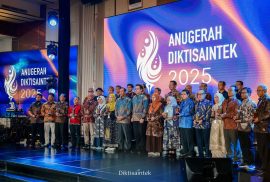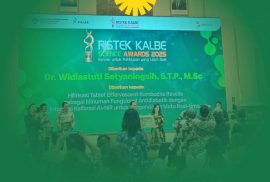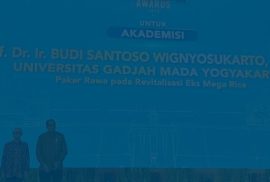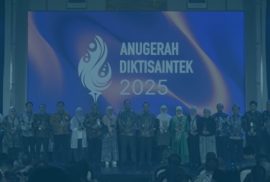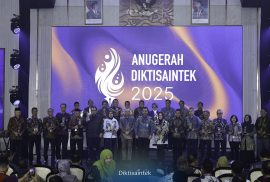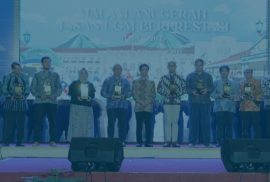Arsip:
Slider
In the model farm developed through the Field Research Center (FRC) UGM Wates, research practices that directly impact society are beginning to show solid results, both in terms of productivity and land management efficiency.
Dr. Sri Rahayoe, S.T.P., M.P., from the Faculty of Agricultural Technology, Universitas Gadjah Mada (UGM), has once again achieved national recognition by receiving the Bronze Winner Award at the 2025 Diktisaintek Awards in the category […].
The Directorate of Research Universitas Gadjah Mada (UGM) organized a Sharing Session on Enhancing SINTA Data Management on Thursday, 18 December 2025, at Multimedia 1 Room UGM Central Office.
Dr. Widiastuti Setyaningsih, S.T.P., M.Sc. , a lecturer and also researcher at the Faculty of Agricultural Technology, Universitas Gadjah Mada (UGM) received the RISTEK KALBE Science Awards (RKSA) 2025.
Prof. Dr. Ir. Budi Santosa Wignyosukarto, Dip. H.E., lecturer of the Graduate School of Universitas Gadjah Mada (UGM) and a leading expert in wetland management and development, received the Sutami Awards 2025 presented by the […].
Universitas Gadjah Mada (UGM) achieved national recognition awarded by the Ministry of Higher Education, Science, and Technology of the Republic of Indonesia. Two scientists from Universitas Gadjah Mada were honored with prestigious awards at the […].
Amid the challenge of declining popularity and interest in Science, Technology, Engineering, and Mathematics (STEM), consistency in preserving and nurturing scientific knowledge has become essential to ensuring sustainability.
The Hitachi Global Foundation officially announced the recipients of the Asia Innovation Award 2025 from various asian countries in January 2026. The awards were presented directly by the Hitachi Global Foundation on Friday, 16 January […].
Universitas Gadjah Mada reaffirms its commitment to fostering a strong research culture and advancing the dissemination of knowledge through the UGM Research and Publication Awards 2025.
Universitas Gadjah Mada (UGM) achieved national recognition awarded by the Ministry of Higher Education, Science, and Technology of the Republic of Indonesia. Two scientists from Universitas Gadjah Mada were honored with prestigious awards at the […].


